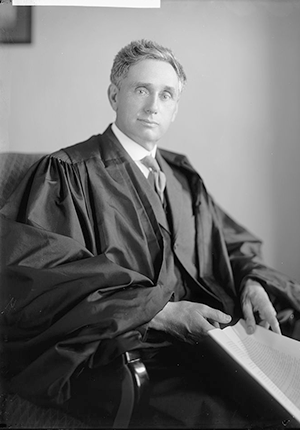Summary
In Whitney v. California, Anita Whitney attended a meeting in Oakland to organize a branch of the Communist Party. She was charged and convicted under the California Criminal Syndicalism Act. This law criminalized any person knowingly becoming a member of an organization that called for “the commission of crime, sabotage, or unlawful acts of force and violence or unlawful methods of terrorism as a means of accomplishing a change in industrial ownership or control, or effecting any political change.” Generally speaking, state criminal syndicalism laws were designed to curb groups like the Communist Party that advocated radical political and economic change through lawless (and often violent) means. The Supreme Court upheld the California law and Whitney’s conviction—urging deference to the state legislature. But this case is best remembered for Justice Louis Brandeis’s powerful concurrence—advancing a vision of robust free speech protection that would influence the Court for decades. Within Brandeis’s concurrence, we see the foundation for future speech-protective decisions by the Supreme Court, culminating in Brandenburg v. Ohio (1969). With Brandenburg, the Court finally wrote Brandeis’s Whitney concurrence into bedrock constitutional doctrine—concluding that, generally speaking, the government may not restrict speech unless it is directed to and likely to cause immediate lawless action.






